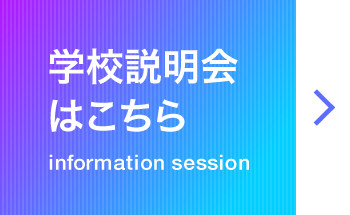 インターアクト部ブログ!!
インターアクト部ブログ!!
2023/11/11
スタンフォード大学e-Japan プログラム修了!


インターアクト部3年の室永怜奈さんが、世界大学ランキングで最上位である米国スタンフォード大学が提供する「Stanford e-Japan国際異文化教育プログラム(SPICE)」に参加し、半年間のプログラムを修了しました。
スタンフォードe-Japanには、日本から最も優秀な30名ほどの高校生が選抜され、世界的な活躍をしている教授や専門家などによるオンライン講義を受講します。アメリカの宗教、日米経済関係、歴史、比較教育、文化比較などについて学び、すべて英語で他の参加者とディスカッションや課題に取り組みます。室永さんはこれらのプログラムを優秀な成績で修了しました。

米国スタンフォード大学とは、オックスフォード大学、ケンブリッジ大学、ハーバード大学、カリフォルニア工科大学(Caltech)、マサチューセッツ工科大学(MIT)と共に全世界屈指の英語圏エリート名門校で、世界大学ランキング2021では世界第2位を獲得しています。以下、室永さんの発表論文です。

Rena Muronaga
Ms. Waka Brown
Stanford e-Japan Spring 2023
June 30, 2023
A Comparison Between the U.S. and Japan: Children of Unauthorized Immigrants
The world is entering a new era of migration. As globalization progresses, people frequently move and live across national borders. In 2019, the number of international migrants globally reached an estimated 272 million (“The number of…”) and many countries including the U.S. and Japan are at a tipping point in their immigration policies. Especially, children of unauthorized immigrants are suffering from great emotional and economic hardships. Immediate government action is essential to solve the problem. This paper will analyze the situations of children with unauthorized immigrant parents from the perspective of family separations and their future lives, and explore how to provide the most humane solutions for them.
Unauthorized immigrants are defined as “noncitizens living in their country of residence without a residency permit. They entered their country of residence without authorization, overstayed a visa or did not leave after being ordered to do so” (Connor and Passel). They continue to stay in the country with an undocumented status for various reasons. For instance, some unauthorized immigrants are in the process of applying for refugee status. Some other immigrants are unable to return home due to ongoing civil war in their home countries. Their children born in the country of immigration are likely to adapt to the culture and language of the country. It is often difficult for the children to go back to their original home countries. Differing from refugees and authorized immigrants, unauthorized immigrants are not able to work legally in the country. They always live with the fear of deportation and detention, and they are not eligible to receive national/federal health insurances (“Fact Sheet…”).
Because of their weak social positions, the children of unauthorized immigrants face a lot of emotional and economic hardships. One of the most detrimental problems is family separation. In the U.S. and in Japan, if parents or children stay in the country without legal authorization, they may be forcibly detained or deported. Children with a detained/deported parent often show signs of strong psychological disorders. When fathers, who are often the main wage earners, become the target of deportation, the loss of his earnings causes economic hardships to the families. Even if immigrant mothers staying illegally remain, it would be difficult for them to find jobs, because their access to information about employment is limited. They only have weak social networks. In a study of unauthorized families that experienced immigration enforcement in the U.S., the family lost 70 percent of its income on average in the six months after the detention or deportation of a parent. The serious economic situation can result in the increase in hunger (Capps et al.). Fear of detention and deportation also makes unauthorized immigrant parents avoid accessing health care and public benefits for their children. For instance, they are eligible to receive subsidized childcare, preschool, job training, and unemployment benefits, but the participation rate is lower than that of authorized immigrant families (Capps et al.). The lack of health coverage and education can hinder the children’s healthy growth and development.
The situation of unauthorized immigrant children is getting serious in Japan. The Immigration Services Agency announced that there are about 300 children under 20 years old who live in Japan without residency status (“Hitaikyo…”), and 57 percent of them have experienced at least one detention of their parents (Ichikawa). In 2020, the U.N. Human Rights Committee expressed concerns about the treatment of non-Japanese nationals detained at immigration facilities and specified that Japan’s long-term detention policy violates the International Covenants on Human Rights (Belmonte). Japanese immigration policy differs from that of the U.S.. The immigration policy of Japan has no upper limit on the length of detention, and detention tends to be prolonged. According to the Refugee Studies Forum, while the U.S. cannot detain immigrants more than 90 days and the average period of detention was 45.7 days, Japan’s average period of detention was 549.5 days, which was 12 times longer than that of the U.S. (“Immigration Detention…”). The detention period tends to be longer in Japan, because immigration centers were originally established as temporary detention facilities before deportation. They are not designed to accommodate non-Japanese people who wish to remain in Japan (“Nyukan…”). In short, Japan does not legally support unauthorized immigrants. Unauthorized immigrant parents are detained longer or deported. Then, their children face many emotional and economic hardships.
The unauthorized immigrant children struggle not only in their childhood, but also in their adulthood. In Japan, the government takes the policy called jus sanguinis. Children born to immigrants do not receive Japanese nationality even if they are born in Japan. Even though they can live outside of the immigration centers if they receive provisional release, they are not allowed to work. Their freedom of residence and traveling is severely restricted. (“Zairyūsikaku…”). The children born in Japan could manage to receive Japanese education even without a status of residence, but they do not have the same rights as Japanese citizens have. They always run the risk of detention and deportation (“huhōsyūrō…). Japan’s policies are intolerant of immigrants, partly because certain Japanese have a strong sense of resistance to immigration policy. They mistakenly believe immigrants would replace people’s jobs and the number of crimes would increase. However, Japan’s birth rate is now seriously declining and many industries are suffering from labor shortage. Also, Kikuko Nagayoshi, a professor of Tokyo university, pointed out that it may be prejudice to say that the acceptance of more immigrants leads to crimes. The likelihood of a person committing crime comes from personal circumstances, not nationality or ethnicity. If there is a difference in the crime rate between immigrants and Japanese, this may largely be caused by the severe economic hardship that many immigrants currently face (Nagayoshi). Therefore, granting citizenship to those unauthorized immigrant children/parents and allowing them to work legally can increase the number of workers who support the Japanese economy. As a result, their stable income will make it possible to decrease the number of crimes committed by immigrants.
In the U.S., immigration policy has changed over time. In the past, unauthorized immigrants temporarily stayed in the U.S. to work. The average period of immigration was less than nine years. However, today, the increasing number of immigrants are shifting from temporary stay to permanent residence. In 2017, unauthorized immigrant adults lived in the U.S. for a median of 15.1 years (Passel and Cohn). It is obvious that the longer a person stays in the U.S., the more likely that person is to form family ties. When unauthorized immigrants have a child in the U.S., their child is automatically granted U.S. citizenship. This policy is called birthright citizenship. It resulted in a significant rise in the number of mixed-status families. As of 2018, there were 5.2 million children under 17 years old living with at least one unauthorized immigrant parent (Capps et al.). To deal with this complex family status, the U.S. government has taken some actions.
In 2009, Barack Obama became the president of the U.S. He established a new immigrant policy which was more tolerant towards undocumented immigrants. For instance, he proposed the Deferred Action for Childhood Arrivals (DACA) for the purpose of guaranteeing temporary relief from deportation. DACA also authorized work for young people who were brought illegally to the U.S. as children. It saved over 700,000 young people, and broadened their educational and working opportunities. Also, he launched Deferred Action for Parents of Americans and Lawful Permanent Residents (DAPA) and tried to provide temporary relief from deportation and eligibility for work authorization to unauthorized parents of U.S. citizens or Lawful Permanent Residents (“Defending DAPA…”). Though the following Trump administration (January 20, 2017–January 20, 2021) pushed a zero-tolerance immigration policy, with the Biden administration as of 2023, the government is trying to move forward with a tolerant immigration policy again. President Biden is trying to grant an eight-year path to citizenship for unauthorized immigrants who are already in the country, update the existing family-based immigration system and revise employment-based visa rules. Also, he is attempting to reunify families who were separated under the Trump administration (Krogstad and Barrera).
Comparing the policies of the U.S. and Japan, it is clear that the U.S. has more tolerant and successful policies for unauthorized immigrants. So, how can Japanese immigration policy be improved?
Firstly, the Japanese government should increase the number of work visas and relax refugee policy. Japan is too conservative in accepting immigrants and refugees today. The lack of legal status makes people unauthorized. Also, those unauthorized immigrant children who have lived in Japan for a long time are accustomed to Japanese culture and some of them have a strong sense of belonging to Japan. Granting them residency is not much of a barrier, and is rather beneficial to Japan’s economy and the coming globalizing society in the future.
Secondly, the Japanese government should establish an upper limit on the length of detention because it is completely inhumane to separate children from their parents for a long time. As of 2023, the Japanese government allows unauthorized immigrants to stay out of immigration centers through provisional release. However, there are no clear conditions for when it will be granted, and it also takes a long time for a provisional release to be granted. Therefore, Japan’s immigration law should be reformed and its detention period minimized.
Finally, both the U.S. and Japan should expand/establish DAPA, because if Japan allows parents to stay and work in Japan, unauthorized immigrants can improve the emotional and economic situation for their children. Family is the basic unit of society and the one that protects and nurtures children. All children in all countries should be granted the right to live happily with their families.




